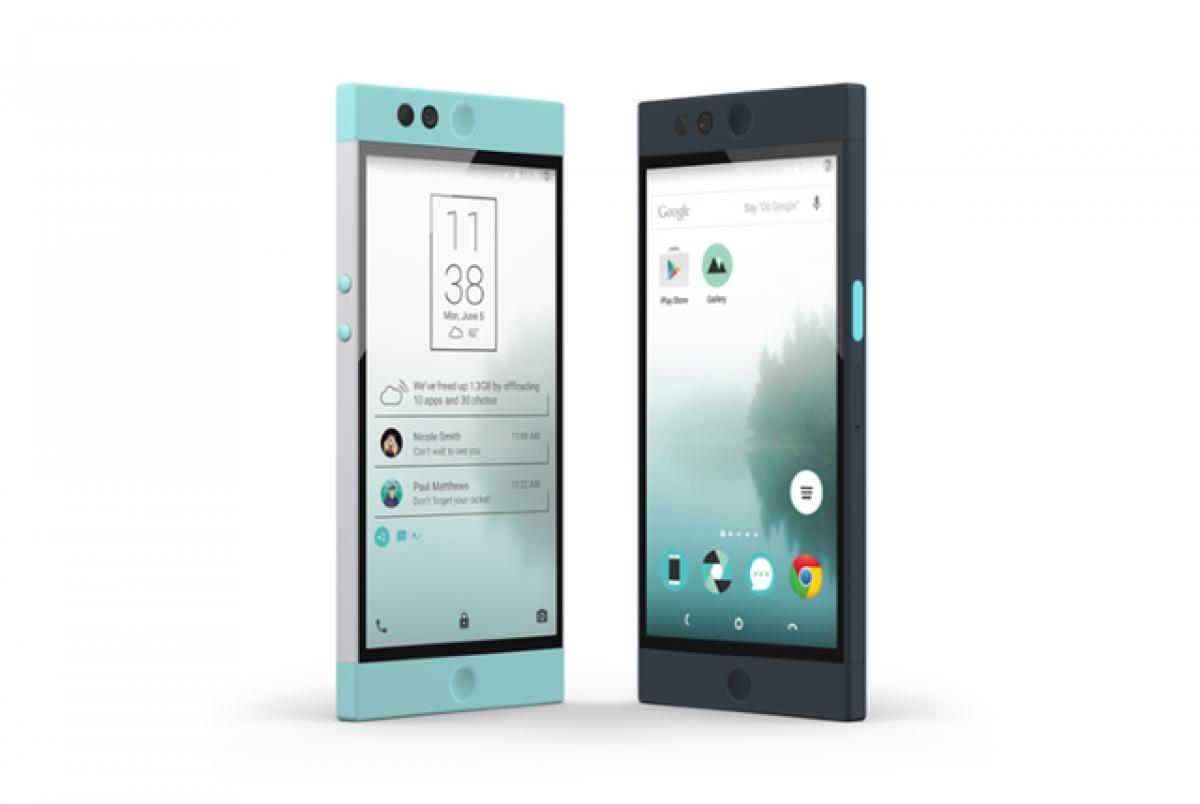Live
- Border-Gavaskar Trophy 2024-25: Jasprit Bumrah to captain India in first Test at Perth
- Jake Paul vs Mike Tyson Draws 65 Million Viewers on Netflix Amid Streaming Glitches
- International Men’s Day 2024: Looking for the perfect gift for the special men in your life?
- Are strict laws needed to ensure MLAs attend Assembly sessions?
- Apple’s Lightning-to-3.5mm Headphone Adapter May Be Discontinued
- Kishan Reddy Slams Telangana Government, Criticizes Congress and BRS
- Lawyers demand urgent implementation of Protection Act
- Cotton farmers protest fraud in weighing process
- Faculty allegedly rags 1st yr student at Govt Med College
- Mini libraries at tribal welfare hostels soon
Just In

An Android phone that never runs out of storage. Nextbit, the company formed by former members of Google\'s Android team, thinks the cloud is the answer to storage solutions, and its first device, the Robin, promises to never run out of storage.
Nextbit, the company formed by former members of Google's Android team, thinks the cloud is the answer to storage solutions, and its first device, the Robin, promises to never run out of storage.

The Robin doesn't really have an endless amount of storage, but rather leverages cloud storage systems to offload pictures, video, files, and even apps when its 32GB of local storage runs out.
Nextbit's software, which runs on top of Android, is designed to learn your habits and automatically offload photos and apps that haven't been used in a long time to the cloud to free up storage as necessary.
A simple tap on one of the offloaded apps, which appear as greyed out icons, and it's downloaded from the cloud with all data and settings intact. Photos can be restored to the phone at full resolution or a screen-optimized size, which allows for more to be stored locally at any given time.
Nextbit says the full resolution files are always backed up to the cloud. Backing up photos and video to the cloud is something that a lot of apps are already tackling, such as Google Photos or Microsoft OneDrive.
Nextbit insists its solution is superior, however, as it seamlessly backs things up whenever ideal conditions are met (Wi-Fi connection, phone is plugged in) and users don't have to remember to open an app to make sure their photos are backed up.
The Robin will also free up space on demand, instead of requiring the user to manually delete things when their phone refuses to take any more pictures. Nextbit also says you'll be able to transfer your data and backups to other devices that run its software, but it's not clear exactly how it will restore everything to a new device.
This constant cycling of the data on the phone is what Nextbit points to as its big differentiator in the very crowded world of smartphones. The company is giving each buyer of the Robin 100GB of cloud storage for free, though in an interview, CEO Tom Moss tells me that number is not fixed and can be adjusted if Nextbit sees that users need more cloud storage capacity.
Interestingly enough, Nextbit isn't planning on charging any subscription fees for the cloud storage and Moss insists that its business model relies on profits from hardware sales. Speaking of hardware, the Robin is a uniquely designed mid-range Android phone.
Nextbit tapped former HTC designer Scott Croyle as its head of design in 2014, and set out to make a phone that stands out among the sea of similar looking phones. The result is a device that's starkly rectangular, but with circular details throughout.
The Robin's all-plastic chassis houses a 5.2-inch, 1080p display, Qualcomm Snapdragon 808 processor, 3GB of RAM, a 2,680mAh battery, and 13-megapixel camera. Unique additions include a USB Type-C charging port and fingerprint scanner embedded into the side-mounted power button. The Robin is completely carrier and bootloader unlocked and is compatible with AT&T and T-Mobile LTE.
Nextbit is selling the Robin through a Kickstarter campaign, which launches today and lasts for 30 days. Early backers will be able to nab the phone for $299, while standard backers will be able to get it for $349. It's not expected to ship until January and will have a retail price of $399 when it does.

© 2024 Hyderabad Media House Limited/The Hans India. All rights reserved. Powered by hocalwire.com







